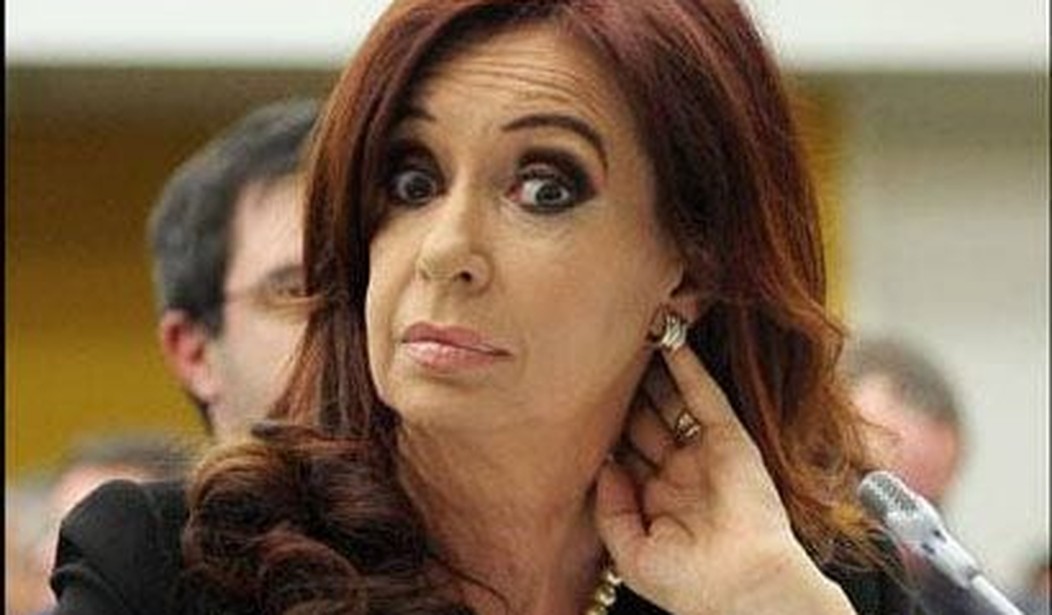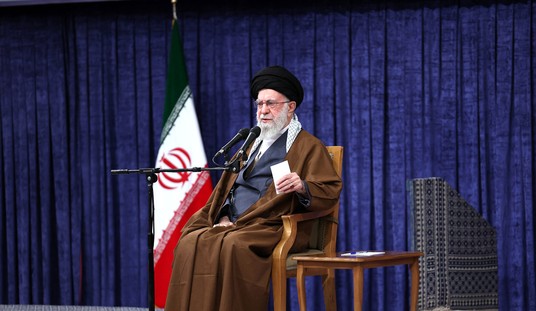WASHINGTON — Nearly two decades after Middle Eastern terrorism left its devastating calling card in South America, special prosecutor Alberto Nisman issued a searing 500-page indictment drawing meticulous and harrowing connections between Iran and Islamic radicalism in the Western Hemisphere.
Going beyond the 1994 bombing of the AMIA Jewish center in Buenos Aires, which killed 87 people and injured more than 100, Nisman painted a picture of Iran and Hezbollah’s vast network of sleeper cells in America’s backyard conducting “activities you wouldn’t imagine” or waiting indefinitely to receive an order to attack, the prosecutor told reporters when he unveiled his report in late May.
Nisman first accused Iran and Hezbollah of being behind the terrorist attack several years ago. But his new report details the infiltration of several Latin American countries through intricate intelligence networks and stresses that the AMIA bombing was just one cog in a greater plan: “a segment in a larger sequence.”
Congress wants to hear from Nisman about his investigation, and he’s willing to come to Washington to talk not only with lawmakers but the Obama administration.
But Argentina is now blocking the tenacious prosector from sharing his findings with Congress.
Rep. Ileana Ros-Lehtinen (R-Fla.), former chairwoman of the House Foreign Affairs Committee and current chairwoman of the Middle East and North Africa Subcommittee, invited Nisman — “a well-recognized, towering figure when it comes to going after bad guys and human-rights violators” — to brief Congress, she told PJM on Tuesday.
“People just don’t know that Iran sees Latin America as fertile ground,” Ros-Lehtinen said. “…I invited him to come. He was going to come educate Congress and the administration on the real threat Iran poses.”
“Few people if any know about this bombing, which should have acted as a wake-up call for us on Iran,” she added in reference to Nisman’s original subject of investigation.
Nisman was also sought by the House Homeland Security Committee, which scheduled a hearing titled “Threat to the Homeland: Iran’s Extending Influence in the Western Hemisphere” next Tuesday at the Subcommittee on Oversight and Management Efficiency. The panel’s chairman, Rep. Jeff Duncan (R-S.C.), tweeted, “I invited AMIA prosecutor Nisman to testify about Iran’s influence in western hemp but Argentine gov denied his request. Not transparent.”
According to Argentine media, Nisman was ordered by Prosecutor General Alejandra Gils Carbó to not talk to Congress because the testimony “is not related to the function of the public prosecutor.”
The government then “clarified” that it was an issue of approving travel costs.
But the Argentine government’s historical lack of forthrightness surrounding the AMIA bombing — and recent coziness with Iran on the investigation — just leads to suspicion over President Cristina Fernandez de Kirchner’s true intentions in keeping Nisman bottled up.
Her husband, late President Nestor Kirchner, admitted in 2005 that the government covered up evidence to stymie the investigation into the attack. After that apology came Nisman’s first accusation pointing toward Hezbollah and Iran, eventually naming the shot-callers as Mohsen Rabbani, Iran’s cultural attaché to Buenos Aires at the time of the bombing and the alleged coordinator of Iranian cells across the continent; Mohsen Rezai, currently Iran’s secretary of the Expediency Council; Ali Akbar Velayati, minister of foreign affairs at the time of the attack; then-President Hashemi Rafsanjani; then-Intelligence Minister Ali Fallahian; and, as the final stamp of approval, Ayatollah Ali Khamenei.
Interpol red alert notices are active for Rabbani, Fallahian and Rezai. Upon protest from Iran in 2007, Interpol’s executive committee agreed not to issue red notices for Rafsanjani and Velayati.
Rezai and Velayati were among President-elect Hassan Rouhani’s challengers in this year’s presidential election. “In any part of the world, they would be in prison; in Iran, they run for president,” Nisman said.
Nisman said last week that Rouhani, then secretary of the National Security Council, was not at the meeting that green-lighted the 1994 bombing — but has “irrefutable proof” that Iranian leaders coordinated the attack.
Incredibly, Argentina agreed with Tehran this January to put the case to rest not by necessarily bringing any of the suspects to justice, but by establishing a joint “truth commission” whereby Iran would investigate its own involvement in the terror attack. The memorandum of understanding was given Tehran’s final stamp of approval in May, just before Nisman released his damning report.
“To not allow him to travel to the U.S. is a misguided act and it reaffirms the truth commission is a farce,” Ros-Lehtinen told PJM, adding the restriction on Nisman coming before Congress is a “deplorable situation” that “goes against his right to freedom of expression and freedom of travel.”
“Iran continues to harbor and support extremist elements,” she said. “…Shame on President Kirchner and anyone who’s had any say about not allowing him to come.”
Ros-Lehtinen said she believes Kirchner is “betting on Iran being the winner in all of this power play” — and assuming that Iran will have more sway over the continent in the long run than the United States.
The Islamic Republic’s expanded influence in the Western Hemisphere was even confirmed in the State Department’s annual international terrorism assessment, which was sent to Congress a day after Nisman issued his report and warned that sponsorship of terror by Iran and Hezbollah has surged to “a tempo unseen since the 1990s” with attacks spanning three continents.
The report implicated Iran in attacks in India, Thailand, Georgia and Kenya, as well as the plot to murder the Saudi ambassador in Washington. “The thwarted plot demonstrated Iran’s interest in using international terrorism – including in the United States – to further its foreign policy goals,” the State Department said.
Ros-Lehtinen noted the wave of Iran’s diplomatic and cultural missions popping up across Latin America. “No one in Latin America is trying to get to Iran,” she said. “These are being used as fronts to deepen their influence in the Western Hemisphere.”
Nisman said Iran’s terror network in Guyana was behind the 2007 plot to blow up the jet-fuel supplies at JFK International Airport. Two men, a U.S. citizen and a Guyanese citizen, were convicted in the conspiracy in 2010.
Ros-Lehtinen said she expected Nisman, who has been brushed off as a “Zionist” by Iran, to travel beyond Washington during his time in the U.S. and meet with some Jewish groups.
She said the Foreign Affairs Committee was waiting until Nisman had secured his visa to schedule a hearing, but now, in an effort to get around Argentina’s ridiculous block on his visit, they may have to ask the prosecutor to brief lawmakers via videoconference.
Ros-Lehtinen is still hoping Nisman will be able to air his warning of the broad terror threat in person, in public before the committee. “We could schedule it in a New York minute,” she said.









Join the conversation as a VIP Member